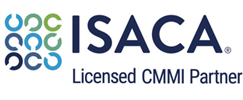ISO 27001 certification is a worldwide recognized benchmark for security of information, officially introduced in the month of October, 2005. This important standard effectively overtook the BS7799-2 standard, which established it as the only standard of the Information Security Management System (ISMS). The origins of this specification go back to the nineties, with BS7799 originally an ethical code. As the field of information security grew, it was time for a second version to emerge, specifically focused on management systems. It is based on this refined structure that businesses today try to find to obtain certification. With more than a thousand certifications currently in use around the world, ISO 27001 has become an essential credential that demonstrates the highest standards of information security.
ISO 27001 certification will offer a complete framework for businesses to successfully establish, implement, operate, monitor, evaluate and continually enhance their ISMS. Its not just an exercise to ensure compliance its an investment in strategic planning that demonstrates the companys commitment to safeguarding sensitive information. The designs and implementation of an ISMS are specific to each company, greatly dependent on its specific needs and goals. Factors such as internal security requirements and the existing processes in place, and the overall structure and size of the business, all play a significant part in determining a customised and efficient ISMS.
ISO 27001 certification allows organizations to effectively control and safeguard their data assets. Following the guidelines laid out in the standard, companies can spot the potential security threats and put in place the appropriate measures to reduce their impact while ensuring the security and the integrity and accessibility of data. This proactive approach does not just safeguard important information but also helps build confidence with customers and business partners. The achievement and maintenance of this certification show a strong dedication to best practices, ultimately enhancing the organizations ability to withstand evolving cyberattacks and increasing its reputation overall on the market.




